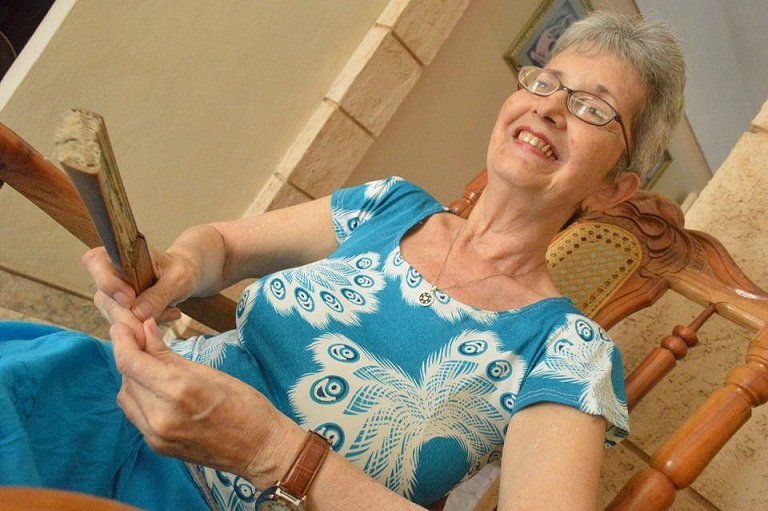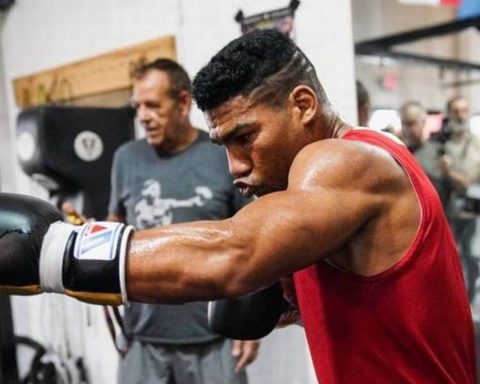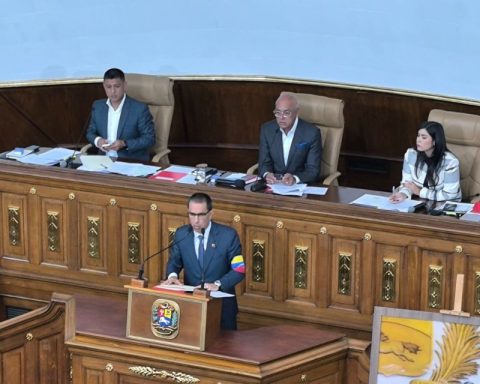Among the most original voices of contemporary Cuban poetry, that of Gilda Guimeras Pareja (Havana, 1957) finds her place there: among the least known, the least mediatic, those who work quietly to “not attract the attention of the universe.” But there are her verses as the best proof of permanence, stealing the astonishment of those who read them for the first time or the anger of being late to meet them.
welcome with reservations
to the encyclopedias
the Oscars and Grammys
the radio news
and the weather reports.
I especially doubt
of the obscene modesty of the pronoun we
when should i read
of the happy years by memory
of those who did not lose pieces in the avalanche
of those who always have an answer at hand.
(Poem “I doubt”)
Although Gilda Guimeras has tried her luck in narrative, it is in poetry where (very personal observation) her universe widens. The lyrics of this habanera—based so many years ago in Guanajay (Artemisa province)—claim much deeper attention from Cuban critics, dazzled, at times, by the lights of entertainment.
Most Cuban authors far from the capital have to face (I insist, some, not to be absolute), media silence. In your case, does this situation bother you or do you think the matter goes beyond distance?
The distance matters. Being present and related is always a good way to reach the media. From the provinces it is more difficult. Of course, it is also necessary to be well considered by those who hold the promotion mechanisms. For example, when in 2016 I was awarded the Tiflos Poetry Prize, very few spaces echoed it and very few people found out about it, something that would not have happened to other authors. Personally, I find it curious, but it doesn’t bother me. I have never aspired to be in the center of interest of any publication.
I have rarely heard her talk about her visual problems. I don’t think they are at all a problem to write and publish, do I?
For me they have not exactly been an obstacle when it comes to writing. In fact, it’s one of the things I can do right now. Without visual problems I would not have reached fiction literature, I would have kept writing chronicles, as I had until then. This does not mean that with a visual disability it is easy to write, especially when one prefers to do it by oneself, without using mediators. Digital technology with its aids for the blind makes this independence possible, only, at least in my case, it requires working at a different pace, slower than usual.
Also, a certain discipline, perseverance and a good dose of patience that I have been acquiring over the years. Seeing something finished that before was only reality in the mind is well worth the effort. Now, to publish, move around publishers, go from one place to another with a book, for that, the visual limitations make themselves felt and leave me at a clear disadvantage.
With a degree in History, Gilda Guimeras has collaborated with different publications in Cuba and if we must necessarily resort to the prizes obtained, as evidence of her quality, we mention the XXIX Tiflos Poetry Prize (Spain), the Helen Keller Poetry Contest (Colombia) and the Latin Heritage Foundation (United States).
Certain authors, in general, talk about their literary influences until they managed to find their “way”. Is it your case? Is full maturity reached in poetry?
Talking about influences in my poetry is not easy for me because at the time when I used to read it more frequently, I never felt the desire or the inner need to write it myself, in the manner of this or that author. My first poems arose as an expressive need of which I myself, until that moment, was not aware. A person as knowledgeable as Guillermo Rodríguez Rivera found in them points of contact with Eliseo Diego’s poetry, and that opinion, which surprised and greatly satisfied me, made me remember that he hadn’t read a poem of his for years.
I don’t think I’ve reached poetic maturity and I’m not ashamed to say so because, although I’m old enough for it, I started writing poetry just ten years ago. In any case, I do know what I need to write about and in what ways I would never do it.
The first time I read the poems in your book Who arrives at the platforms, I confess, I imagined a rebellious author, devoted to passions and even a feminist, just the opposite, right?
—It is already known that a book can end up being as many books as there are readers. Everyone reads from himself. You may or may not experience certain emotions that reading arouses. Maybe who arrives at the platforms (Well, my most recent collection of poems, at the same door, published in Miami by Primigenios in 2020 has not circulated in Cuba, it may leave that echo in some readers). I perceive it in a different way. It seems to me that, if the author’s name were not printed, anyone could realize that it was written by a woman; but I don’t think it’s a feminist book. Feminine could be a more exact term, if we understand it as the fruit of a woman’s sensibility and not as a collection of trivial matters that some non-feminists would like to lump under that term. I do not see in it a rebellious book neither in form nor in content; Rather, it seems to me a calm collection and, if you will, with a sobriety that somehow manages to be charged with lyricism. What you find in my poems, I would subscribe, although only partially, for some of my stories.
I cultivated dementia
to root myself in you
as one day the trace of the grandfather was seized,
I made my house sprout
in the seam of land that will sink first
when the shipwreck arrives.
Give me then the rain
with which to nest late shreds of innocence
stick a Benny song in my ear
ever bloom,
don’t let it go.
(Poem “Island”)
Among his storybooks stand out: “The night is better” (Editorial Unicorn, 2008), “Eva Stations” (Casa Eolo, Spain, 2012), “The rules of the game” (Unicorn, 2019), as well as the collection of chronicles “Told in a few lines” (Editorial Unicorn, 2015) and the poetry books “Who arrives at the platforms” (Visor Books, 2016) and “Before the same door” (Primigenios, United States, 2020).
In a previous conversation he told me, and I quote: “There are fewer and fewer people who read poetry and I fear that those who make decisions in the world are not very given to it.” Do you maintain this position? Don’t you consider it a “cliché” that a verse can save us from all evil?
I still believe that less and less literature is read and, within it, less poetry. And, yes, it is certainly a cliché, but we must not forget that commonplaces end up being so because they contain something that many people have considered true or close to that elusive entity that we call truth.
Unfortunately, a verse cannot save us from each and every one of the possible evils, that is not even its function, but its light can save us as people in the midst of various evils. It can be a gift for the soul and that is not little.
In times of crisis (economic, social, health…) pessimism emerges, even many writers get carried away by the current of discouragement. Do you do the exact opposite or not?
We writers are people who live in certain times and circumstances, and that emerges in some way in the work. We are in the midst of a crisis with no end in sight and it is inevitable that this circumstance is reflected in what I write. I do not intend to be optimistic or pessimistic and, more than that, I think that my work can reflect a degree of skepticism and a certain pity (this word that seems so out of fashion), caused by the fate of ordinary people in times of crisis. . Maybe I’m wrong. Surely, I am the least qualified to judge him.
Those of us who know her know that she deeply loves music. Which has never been clear to me which genre and which performer(s).
My musical tastes are quite eclectic. I often listen to classical music from almost all periods, especially the Impressionists. I also really enjoy good popular music, especially jazz, troubadour or author songs, filin, rock or bossa nova. Citing names is complicated because there are many. Right now I think that this day would benefit from the music of Claude Debussy, Joaquín Sabina or Marta Valdés, although a little later, when extra energy is needed, it would not be bad to listen to the group Queen.
















